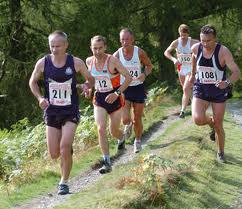A recent report in MedPage Today provided more evidence that moderate exercise will not only make you healthier, it will make you live longer and happier. The study was reported at the EuroPRevent 2012 in Dublin, Ireland. It has not been published yet in a peer-reviewed juornal, so we should withhold judgment regarding its validity. Yet, this study is so extraordinary that waiting for peer-review feels like nitpicking.
A recent report in MedPage Today provided more evidence that moderate exercise will not only make you healthier, it will make you live longer and happier. The study was reported at the EuroPRevent 2012 in Dublin, Ireland. It has not been published yet in a peer-reviewed juornal, so we should withhold judgment regarding its validity. Yet, this study is so extraordinary that waiting for peer-review feels like nitpicking.
The Study
The Copenhagen City Heart Study, which is a prospective cardiovascular population study begun in 1976 and had 19,329 participants. My first thought when I read the report of this long-term study, was that anybody embarking on a 35-year study in an American University would have most likely lose his job. Wait for 35 years to publish results? Good luck. Well, I was wrong; the researchers mined data from this long-term study to publish more than 750 papers, which adds to confidence that the results of this study will be published as well. So what did they find?
There were 19,329 participants in the Copenhagen City Heart Study, which is a prospective cardiovascular population study begun in 1976.
When the study began, participants ranged in age from 20 to 79.
All participants underwent examinations over 2-year time frames beginning in 1976, 1981, 1991, and finally in 2001. In addition to assessments of cholesterol, blood pressure, blood glucose, and BMI, patients were also asked about smoking, alcohol consumption, education, and income.
The 1,878 participants in the jogging substudy (1,116 men) were also asked about jogging frequency and pace.
The researchers tracked the data using a personal identification number in the Danish Central Register. The authors compared deaths in joggers to deaths among non-joggers from the main study cohort.
Jogging was associated with a 44% reduction in the relative risk of death over 35 years compared with deaths among non-joggers, according to Peter Schnohr, MD, chief cardiologist from the Copenhagen City Heart Study.
And the benefit was observed for both men and women.
That reduction translated into an age-adjusted survival benefit of 6.2 years in men and 5.6 years in women. Sorry ladies, but you live, on average, much longer than men. So this is only fair.
Everything in moderation
In this analysis the optimum benefit was realized for those who jogged at a slow-to-average pace between an hour and two and half hours done in two to three sessions over the course of a week. This is an amazing finding. It upends the common belief that ”the more the better”. Not only moderate exercise was good enough -it was the optimum, at least in this study. So much for “no pain no gain”.
When I used to extol the benefits of running to anybody who would listen, the common rebuttal was ” have you ever seen a runner smiling?” Indeed, despite the knowledge about endorphins and the dopamine reward, the huffing and puffing, sweat and pain don’t conjur up an image of happiness. Yet, the study found that longer life is often a happier life; participants in the study reported an overall sense of well-being.
An unexpected caveat
As if intended to rain on the parade, PLos One carried a surprising article by Dr. Claude Bouchard of Pennington Biomedical Research Center, part of the Louisiana State University system, and his colleagues. By analyzing data from six rigorous exercise studies involving 1,687 people, the group found that about 10 percent actually got worse on at least one of the measures related to heart disease: blood pressure and levels of insulin, HDL cholesterol or triglycerides. About 7 percent got worse on at least two measures. About 1 percent got worse on 3 measures. (Interestingly, about 10% got inordinately better on at least one measure). What such a distribution suggests is that there may be a genetic explalnation for this phenomenon. But nobody really knows what it is. Factors that would have given some clues, such as gender, ethnicity, race, age, intensity of exercise, where of no help -the adverse response to exercise was independent of all those factors.
Does that mean that you can allay your pangs of guilt for not exercising by rationalizing that you may belong to the 10% who respond to exercise in a paradoxical way? No such luck. First, these measures are not markers of acute adverse events, such as a myocardial infarction. Second, these are laboratory values, and in medicine we should treat people, not lab numbers. Is there any evidence that these people suffer from onset of heart disease, hypertension or diabetes because they exercise? Not a shred of evidence. A lot more research has to be done before we recommend no exercise for these people. Only when we know why the 10% respond the way they do, will we know how to approach it on a rational basis.
So in the meantime, just go out and do it!











